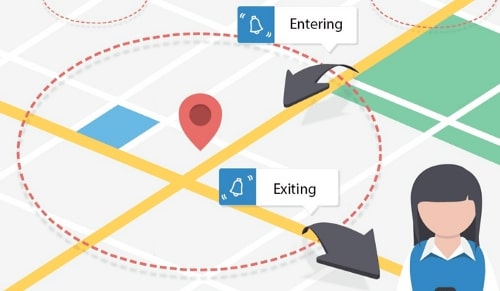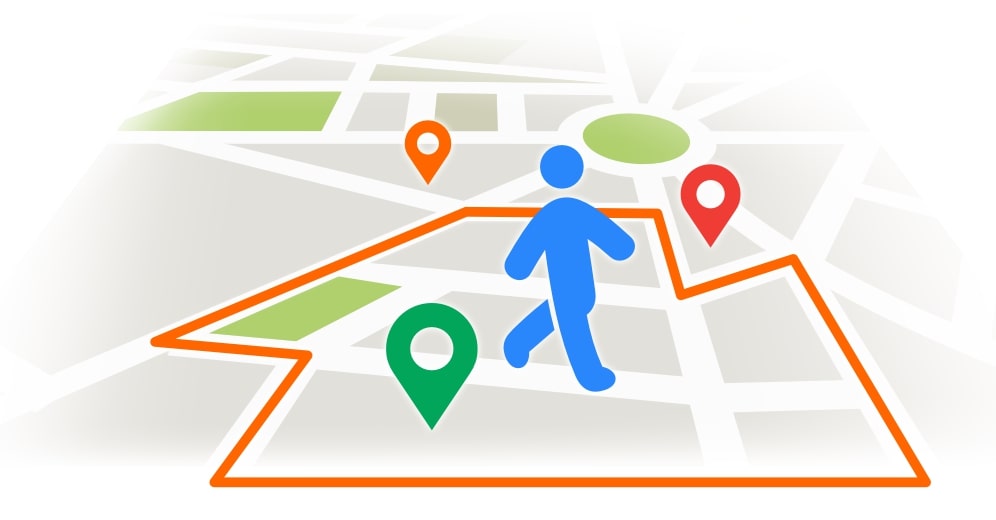As technology progresses forward, we find we find tech devices to become an integral part of our life. We carry these devices with us at almost all the time and they include smartphones, smartwatches, or even smart cars. Although they tend to make our life a lot easier, they also carry the risk of invading our privacy. Operating system developers such as Google or Apple, or even app developers, have access to information such as our emails, files on our phone, location, and text messages. There can be multiple uses of such information such as Geofence and targetted ads.
What is Geofence?
Geofence is a service that triggers an action when a device enters or exits a pre-defined area. Many businesses use this service to give out targetted ads, coupons, or security alerts. The way geofencing works is that first, an administrator developer defines a boundary of an area that will trigger a pre-determined action. This area can be as simple as just drawing a 100m radius circle or making a complex area. This virtual boundary or geofence will then trigger the action whenever the device enters or exits it.

The location of the device can be determined by Cellular Networks, WiFi, GPS, or RFID. Apps can be developed to make use of your location and geofencing, however, they require your permission to access your location. It is up to you whether you decide to allow the app or not. For example, you might connect to a WiFi at a restaurant, this will give out your location, and then you might receive telemarketing messages related to a restaurant nearby.
also read: Google Maps now use DeepMap Machine Learning to improve traffic accuracy
Use of Geofencing in Police Investigations
In 2018, the police arrested Jorge Molina for 6 days, after they suspected him for murder. According to the report, The Police found his phone was at the scene of the crime. They found out about his phone’s whereabouts by using a geofence warrant. The 23-year-old was later on released when it was proved that he just lent his device to someone. The police later on arrested that person. Jorge is currently filing a lawsuit against this privacy breach.
Traditionally if the police get a warrant to search their suspect’s property and belongings. In the case of geofence warrants, the police request Google or other tech companies to give data about the devices in a certain location in a time window. The companies then provide the data anonymously to the police who narrow down their list to a few suspects using their skills. The police may also ask for access to emails or the names of the account holders.
Although this newer technology seems to make the police work easier, it raises the concern regarding privacy protection and its breach. Recently two judges have denied access to geofence warrants saying that it’s a breach of privacy. They also raised the question of whether or not these warrants respect the Fourth amendment protection for searches or not.
also read: TikTok under fire for violating user privacy rights and stealing their data
Will we see it become a common practice in the future?
The technology mostly seems to be a hit or miss but we are observing an increase in its use. Activists and Lawmakers are working in order to make the use of geofence warrants illegal and to make it’s findings not be acceptable in a courtroom. According to them, it goes against privacy protection, and secondly, the bystanders at the crime scene will also become possible suspects.
The technology might seem great in theory, but with the current rules and regulations, it seems illegal and unprofessional. Lawmakers foresee this practice getting banned in the future. However, it might be useful in solving crime with more refined rules.


